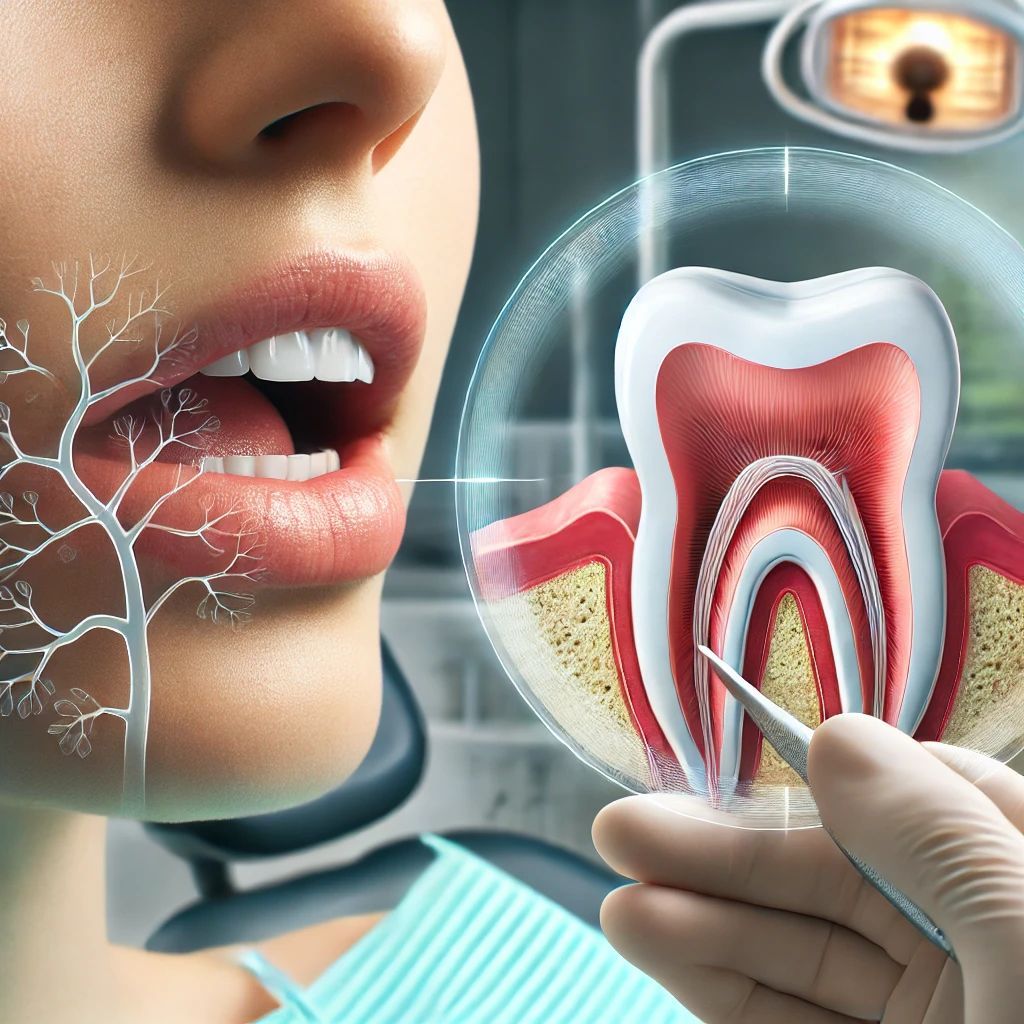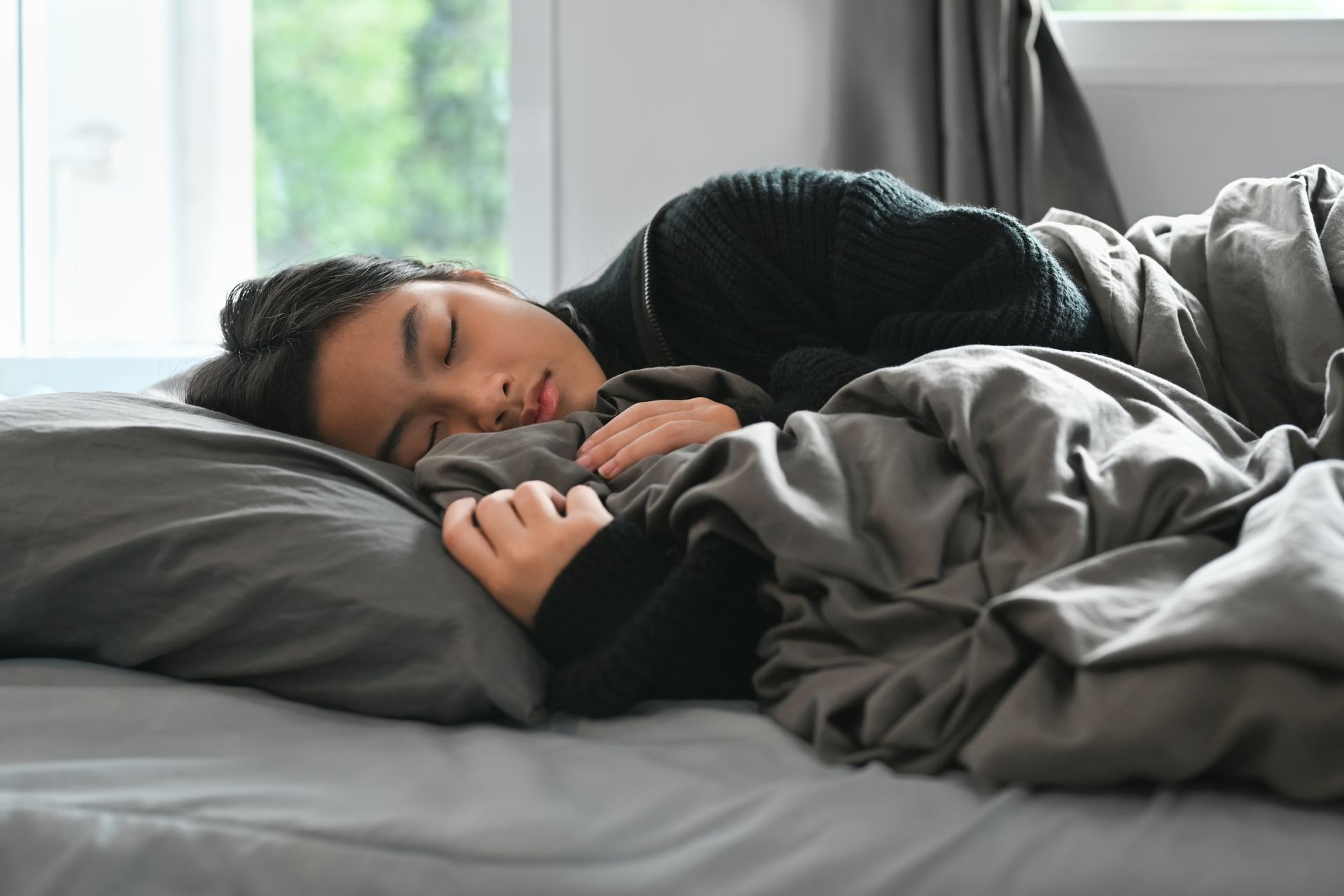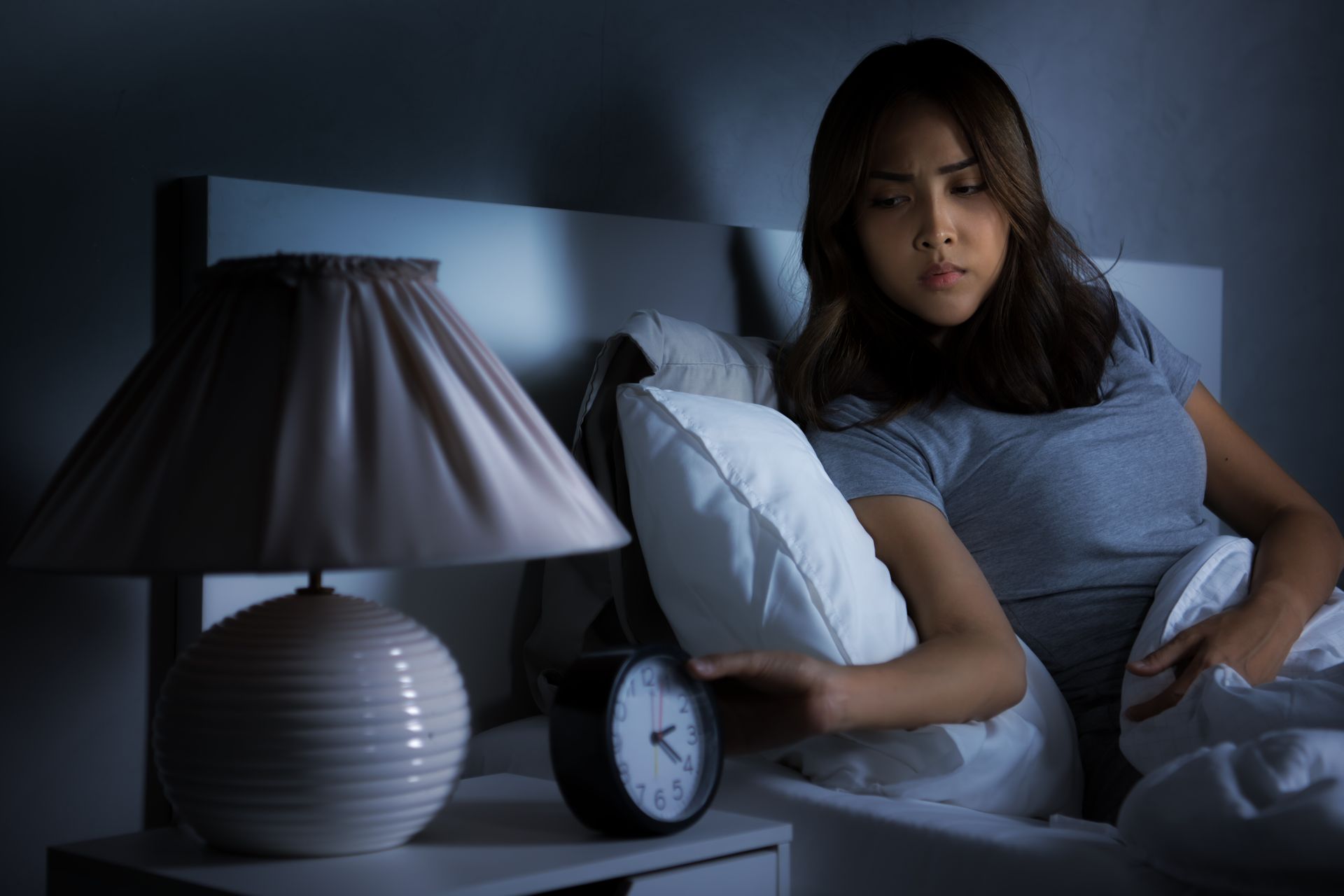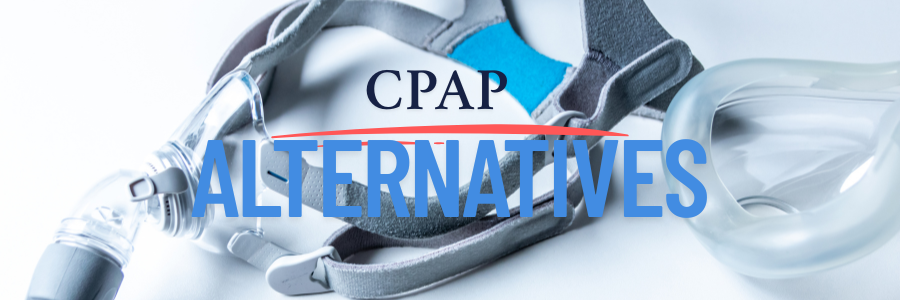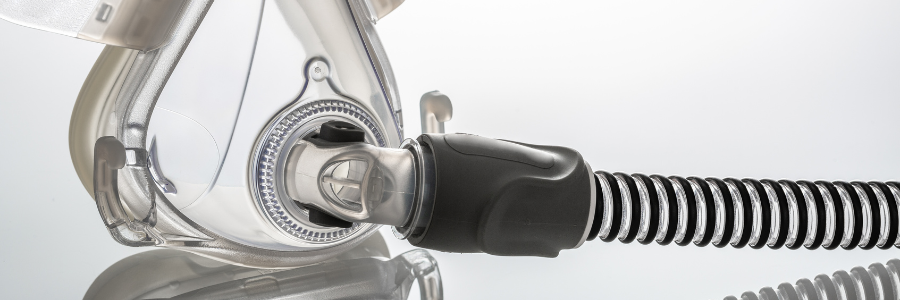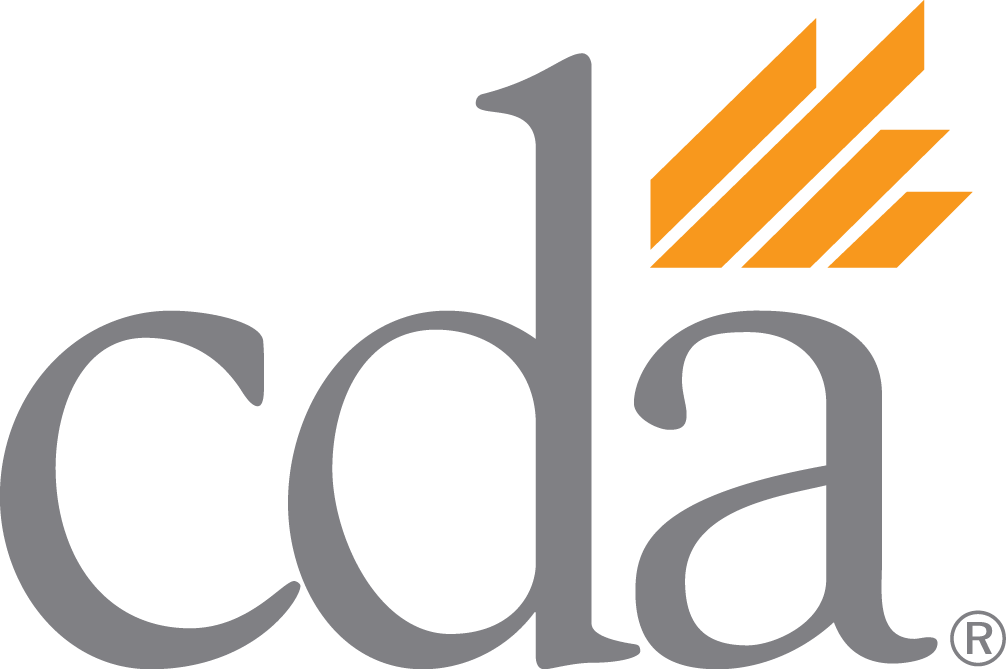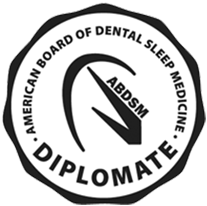Can Sleep Apnea Lead to Disability? Signs You Shouldn't Ignore

For many,
sleep apnea is dismissed as just chronic snoring or feeling tired. But beneath the surface, this common sleep disorder can be a silent, insidious threat, gradually eroding one's health and quality of life. The question then becomes, can severe, untreated
sleep apnea truly lead to disability? The unsettling truth is, yes, it can. Recognizing the signs and seeking timely professional help, especially from a qualified
sleep apnea dentist or sleep specialist in areas like
Poway, is crucial.
Understanding Sleep Apnea: Beyond the Snore
At its core, sleep apnea is a condition in which breathing repeatedly stops and starts while you sleep. These interruptions, which can last from a few seconds to over a minute and occur dozens or even hundreds of times a night, starve your body and brain of vital oxygen.
There are primarily two types:
- Obstructive Sleep Apnea (OSA): The most common type, occurring when the muscles in your throat relax too much, causing your airway to narrow or close.
- Central Sleep Apnea (CSA): Less common, where your brain fails to send the correct signals to the muscles that control breathing.
- Mixed Sleep Apnea: A combination of both.
Regardless of the type, the repeated oxygen deprivation and constant micro-arousals (even if you don't fully wake up) wreak havoc on your body and mind. This cascade effect leads to systemic inflammation and a host of health problems.
Common Symptoms (The "Ignored" Signs):
Many symptoms might seem minor at first, but they're often red flags—sometimes even pointing to apnea without snoring, which can easily be overlooked:
- Excessive Daytime Sleepiness (EDS): This isn't just "being tired." It's an overwhelming urge to sleep, even in inappropriate situations like during conversations, at work, or while driving.
- Loud, chronic snoring: Often accompanied by observed pauses in breathing, followed by gasps or choking sounds.
- Morning headaches.
- Mood disturbances: Irritability, mood swings, depression, or anxiety.
- Cognitive issues: Difficulty concentrating, memory problems, or persistent "brain fog."
- Dry mouth or sore throat upon waking.
- Frequent nighttime awakenings to urinate.
- Decreased libido.
The Path to Disability: When Sleep Apnea Becomes Debilitating
When we ask is sleep apnea is a disability?, It's important to clarify that sleep apnea itself isn't automatically recognized as a disability by programs like the Social Security Disability Administration (SSA). Instead, it's the severe and persistent impact of uncontrolled sleep apnea on your ability to perform major life functions and engage in "substantial gainful activity" (SGA) that can lead to a disability determination. This means demonstrating that despite consistent medical treatment, your symptoms are so debilitating that you cannot work.
Here are specific impairments that, when severe and directly linked to untreated sleep apnea, can contribute to a disability claim:
Cognitive Impairment
Chronic oxygen deprivation and fragmented sleep directly impact brain function. This can manifest as:
- Severe memory loss: Difficulty recalling recent events or information.
- Inability to concentrate or focus: Struggling to maintain attention for even short periods, making complex tasks impossible.
- Impaired decision-making and problem-solving: Leading to poor judgment at work or in personal life.
- Increased risk of accidents: A significant danger, especially while driving or operating machinery.
- A decline in educational or learning capabilities.
Mental Health Disorders
The relentless stress of sleep apnea and chronic sleep deprivation profoundly affects mental well-being:
- Chronic and severe depression: A persistent state of sadness, loss of interest, and hopelessness that doesn't respond to typical treatments.
- Anxiety disorders: Generalized anxiety, panic attacks, or social phobia exacerbated by constant fatigue and stress.
- Mood disturbances and personality changes: Irritability, aggression, or emotional numbness that strains relationships.
Cardiovascular Complications
Sleep apnea is a major risk factor for serious heart conditions:
- Refractory hypertension: High blood pressure that remains stubbornly high despite multiple medications.
- Heart failure: Including chronic pulmonary hypertension (high blood pressure in lung arteries) and cor pulmonale (right-sided heart failure).
- Increased risk of stroke: Due to factors like high blood pressure and irregular heart rhythms.
- Arrhythmias: Irregular heartbeats, such as atrial fibrillation, which significantly increase stroke risk.
Other Systemic Impacts
Beyond the brain and heart, severe sleep apnea can affect other vital systems:
- Uncontrolled Type 2 Diabetes: Sleep apnea can worsen insulin resistance, making diabetes harder to manage.
- Chronic fatigue syndrome-like symptoms: Profound, persistent fatigue that isn't relieved by rest.
- Liver problems, Such as non-alcoholic fatty liver disease (NAFLD), which is increasingly linked to sleep apnea.
- A compromised immune system makes you more susceptible to infections.
Recognizing the "Red Flag" Signs You Shouldn't Ignore
It's one thing to feel tired; it's another for sleep apnea to truly undermine your life. Here are the "red flag" signs that indicate your condition might be progressing towards a disabling state:
- Falling asleep uncontrollably: Do you nod off during meetings, while talking to people, or, most dangerously, behind the wheel? This level of sleepiness indicates severe impairment.
- Significant decline in work or academic performance: Are you missing deadlines, making frequent errors, or struggling to maintain your job or studies due to fatigue and cognitive issues?
- Frequent absenteeism: Are you regularly calling in sick because you're simply too exhausted or experiencing other health issues directly related to sleep apnea?
- Strained personal relationships: Is your irritability, lack of energy, or snoring causing significant conflict with family or friends?
- Inability to perform daily tasks: Are you struggling with basic chores, self-care, or managing your finances due to overwhelming fatigue or cognitive impairment?
- Worsening of pre-existing health conditions: Are your hypertension, diabetes, or heart problems becoming more difficult to control, even with medication, potentially due to untreated sleep apnea?
Early diagnosis and intervention are not just about improving your quality of life; they are critical for preventing long-term, potentially irreversible damage and reducing the likelihood of your condition progressing to a disabling state.
Seeking Help: The Right Professionals and Local Resources
If you recognize these red flags or if you're struggling with your current sleep apnea treatment, don't delay.
Who to See First?
- Primary Care Physician: Start here for an initial assessment and referral to a sleep specialist.
- Sleep Specialist: Essential for definitive diagnosis (through a sleep study) and comprehensive treatment planning.
- The Crucial Role of a Sleep Apnea Dentist: For many, especially those who struggle with CPAP, an experienced sleep apnea dentist can offer effective Oral Appliance Therapy (OAT). These custom-made devices are a fantastic alternative, comfortably keeping your airway open without a mask or machine.
Understanding Treatment Options and Adherence
Effective sleep apnea treatment is key to preventing disability:
- CPAP Therapy: The most common and often highly effective treatment, but requires consistent use.
- Oral Appliance Therapy (OAT): Provided by a sleep apnea dentist, these custom devices can be a game-changer for those who can't tolerate CPAP.
- Lifestyle Modifications: Weight loss, avoiding alcohol and sedatives before bed, and changing sleep positions can significantly help, especially for mild cases.
- Surgical Interventions: For specific anatomical issues, various surgical procedures can be considered.
Crucially, consistent adherence to your prescribed treatment is vital, not only for your health but also for any potential disability claim. Documenting your efforts to treat your condition is critical.
Local Focus: Sleep Apnea Care in Poway
For residents in and around
Poway, accessing quality
sleep apnea care is convenient. Local sleep specialists and experienced
sleep apnea dentists can provide the necessary diagnosis, treatment options, and ongoing support. Seeking care locally ensures continuity and ease of access to appointments and follow-ups.
Navigating Potential Disability Claim
If your sleep apnea has progressed to the point where it's preventing you from working, you might consider applying for Social Security Disability Insurance (SSDI) or Supplemental Security Income (SSI).
- The SSDI/SSI Process for Sleep Apnea: As mentioned, sleep apnea isn't listed as a direct impairment. Instead, the SSA evaluates its impact under related impairments like chronic respiratory disorders, cardiovascular conditions, neurological issues (e.g., severe fatigue, cognitive deficits), or mental health disorders (e.g., severe depression). You must prove your functional limitations are severe enough to prevent you from performing any substantial gainful activity.
- Documentation is Key: Gather all your medical records, including sleep study results, treatment history, and detailed statements from your treating physicians outlining how your symptoms limit your ability to work. The SSA will also consider your "Residual Functional Capacity" (RFC) – what tasks you can still perform despite your condition.
Conclusion: Prioritizing Sleep for a Healthy, Fulfilling Life
The journey from snoring to potential disability due to sleep apnea is a serious one, highlighting the profound impact this condition can have. However, the good news is that for most, this severe outcome is preventable. By recognizing the early signs, seeking timely professional diagnosis, and committing to effective treatment, you can significantly improve your health and quality of life.
Don't ignore the warning signs. Your sleep health is intrinsically linked to your overall well-being and your ability to live a full, active life. Effective treatments are available, and by taking proactive steps with a qualified sleep specialist or sleep apnea dentist in Poway or your local area, you can regain control and achieve the restful, healthy sleep you deserve.
Frequently Asked Questions
Is sleep apnea officially recognized as a disability by the SSA?
Sleep apnea itself isn't a direct listing in the SSA's impairment list. However, if your sleep apnea is severe and causes debilitating symptoms that prevent you from working, such as severe cognitive impairment, chronic fatigue, or uncontrolled cardiovascular issues, you may qualify for disability benefits under related medical listings.
What kind of doctor should I see if I think my sleep apnea is affecting my ability to work?
You should consult with a sleep specialist for a definitive diagnosis and treatment plan. They can provide the necessary medical documentation regarding the severity of your sleep apnea and its impact on your daily functioning.
Can a sleep apnea dentist help with my condition if I'm struggling with CPAP?
Absolutely. A sleep apnea dentist is uniquely qualified to provide Oral Appliance Therapy (OAT), a highly effective CPAP alternative for many individuals, particularly those with mild to moderate sleep apnea or those who cannot tolerate CPAP.
What medical evidence do I need to potentially qualify for disability benefits due to sleep apnea?
You'll need comprehensive medical records, including sleep study results, detailed notes from your treating physicians outlining your symptoms and limitations, documentation of all treatments attempted (e.g., CPAP compliance data, oral appliance use), and evidence that your symptoms persist despite consistent treatment.
Are there local resources for sleep apnea treatment in Poway?
Yes, quality sleep apnea care, including specialized dental sleep medicine and sleep specialists, is available in Poway to provide comprehensive diagnosis and treatment options
Don't let sleep apnea steal your health and ability to live fully. If you're experiencing severe symptoms or are concerned about the long-term impact of your condition, Complete Health Sleep SoCal is here to help. Our dedicated team, including expert sleep apnea dentists, specializes in advanced and personalized sleep apnea treatments, offering effective solutions beyond just CPAP.
Take control of your sleep and your life. Schedule your free consultation today! or explore more about our comprehensive sleep apnea services.
The information provided in this blog post is for educational purposes only and is not intended as medical advice. Always consult with a qualified healthcare professional for diagnosis and treatment of any medical condition, including sleep apnea. Individual results may vary. Complete Health Sleep SoCal specializes in providing personalized treatment options based on comprehensive evaluations. Your journey to better sleep starts with a profession


